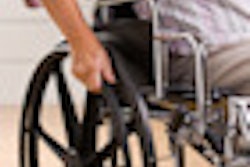
TAMPA, Fla. - Community-based dental education has a positive effect on students' attitudes about treating minorities and the disabled, according to a study presented March 23 at the American Association for Dental Research annual session.
Several studies have shown that minorities, children, and patients with special needs face greater challenges getting necessary dental care, the study authors noted. In addition, the number of minorities is continually increasing.
In light of these trends, researchers from the University of Michigan (UM) surveyed dental school alumni to demonstrate the impact a community-based dental program had on their education and subsequent treatment of disadvantaged patient populations.
Marita Inglehart, PhD, UM dental school professor, noted that UM dental students have always had community outreach experience, but it was not as extensive or structured as the current program, a 16-week structured program required of all fourth-year dental students.
For the study, 267 alumni participants were split into two groups: those who graduated before the launch of UM's Community-Based Dental Education Program in 2000 (older group, n = 89) and those who participated in it (younger group, n = 178). The program requires fourth-year students to obtain 16 weeks of structured experience in community clinics.
Study participants were all alumni who received recruitment emails with a link to an anonymous web-based survey. The survey consisted of questions concerning the respondents' demographic background, their evaluations of community-based educational experiences, attitudes, and behavior related to providing care for underserved patients.
Using a scale of 1-5, with 1 = strongly disagree and 5 = strongly agree, participants responded to such statements as "I improved my clinical skills through the community-based education" and "I deepened by respect for people from backgrounds other than my own while working in a community dental clinic."
Among the study findings:
- More dentists in the younger group said working in community clinics improved their clinical skills (an average score of 4.28, compared to an average score of 3.63 for the older group).
- More dentists in the younger group also said the experience better prepared them to treat patients with special needs (3.03 versus 2.81) and from different ethnic and racial backgrounds (3.51 versus 2.92).
- More of the younger group also said they liked to treat Medicaid patients (2.99 versus 2.14).
The majority of alumni went into private practice (85%), but more of the younger group take Medicaid patients, noted lead author Ashok Rohra, a second-year dental student at UM. In addition, three times as many of the younger group now treat patients considered "disadvantaged" (42% versus 14%).
"Attitudes toward patients on Medicaid of alumni with structured community-based experiences were significantly more positive than the attitudes of alumni without structured experiences," the survey concluded. "Well-structured community-based education can introduce future dentists to providing care for underserved patients and thus shape their attitudes and professional behavior concerning treating underserved patients."
Rohra said his experience working in community clinics changed his perceptions.
"My ideology before was, maybe these clinics are underfunded and maybe the staff won't be as happy about working in that environment, but that was totally not the case," he told DrBicuspid.com after the session. "They enjoyed the experience. The patients were great; it was good. And it was high-quality care, not at all sub-standard."
Rohra hasn't yet decided what kind of practice he will pursue but said the research has opened his eyes to the possibilities of working in public health.



















